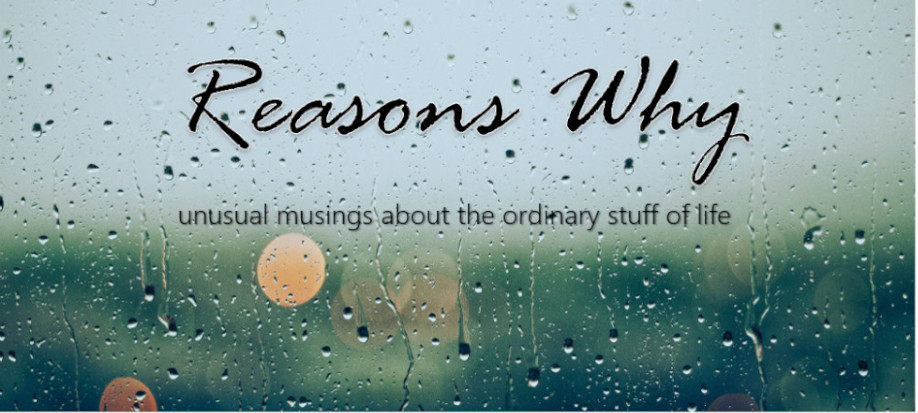Reasons Why Nietzsche Pegged Us All For Murderers (Perspectives Part 5)
One fateful Saturday afternoon last December, I was driving through a thick Canadian winter snowfall to the dress rehearsal of a holiday concert that I had rehearsed diligently in another city, but regrettably never in the town that was host to this particular rehearsal. That's how it came to be that I was driving down an unfamiliar highway, heading into an unfamiliar part of the country, with GPS directions that I was altogether unfamiliar with. Whether it was simply a coincidence or it was a result of divine providence, I happened to be carpooling with one of the other performers that day, so I wasn't completely alone when I took the wrong turn off the highway and steered my ill-fated little Kia Forte onto an old country road. My friend and I didn't notice at first, but as we travelled further and further down the lane, the road got narrower and narrower and the snow got deeper and deeper, until turning around was completely out of the question. See, although it was unbeknownst to the two of us at the time, Google maps hadn't turned me onto a public-use roadway at all, but rather onto the ill-maintained entrance to a provincial park. Somehow I had missed the "WARNING: NO WINTER-MAINTENANCE" signs that had been posted along the path, and my friend and I wound up stranded in what felt like two or more feet of snow in the middle of nowhere.
And you may think that's bad enough, but buckle up (car pun intended), because this story is just getting started.
After spending a good hour or so pushing, digging, reversing, and pushing some more, my friend and I finally came to terms with the reality that we didn't have the strength, knowledge, or tools to get out of the wintry ditch by ourselves. Resorting to our cellphones, we discovered that the battery on mine had been completely drained from the cold, and my friend's wasn't getting any service from the middle of the forest. And so having no other option, we left our car, half-submerged in snow as it was, and walked aimlessly up the frozen pathway in search of either cell reception or human contact, whichever came first.
Perhaps it comes as no surprise, considering we were on a summer hiking trail a few days from Christmas, but cell reception came long before human contact. After walking for about ten minutes in the bitter cold, we picked up barely a bar of service and got through to my dad. Then it was up to him to decipher our situation based on our low-quality call for help, map out our location based on our directional oblivion, and come to our rescue. Almost two hours, three shovels, and half a tank of gas later, and my Kia was free from its snowy confinement.
Now although I didn't realize it in the moment, while I was frantically shoveling snow out of the wheels of my immobilized car, my accidental adventure was actually the perfect analogy for how 19th-century German philosopher Friedrich Nietzsche considered the Age of Enlightenment to have influenced the concept of God in Western civilization.
 |
You may have heard of Nietzsche's God Is Dead before. The statement first appeared in 1882 and has since become one of the most popular and well-known philosophical excerpts from throughout history. It's been misquoted, or at least misinterpreted, time and time again, and its implications are widely debated. Because while the title lends itself to setting up the plot for some kind of religious family/drama coming-of-age film, Nietzsche had very different intentions that are frequently overlooked.
"God is dead. God remains dead. And we have killed him."
In order to fully grasp the implications of God Is Dead, it's important to first consider the historical time period during which Nietzsche wrote. See, Nietzsche's philosophical model was most prevalent around the turn of the twentieth century, during which culture had started moving towards a place where a collective belief in God held less relevance, and society didn't need religion to explain things like creation or human origin. As you may recall from last week's blog post, the concept of Darwinism became prominent in the 1870s, and along with other new scientific concepts and technological advances, God was no longer the foundation of society like it had been in previous centuries.
So when Nietzsche claims so assuredly that God is dead, and accuses so convincingly that we have killed him, it isn't to say that we have literally murdered a physical being, but rather that our changing principles have made a belief in God irrelevant. God Is Dead isn't the set-up to a murder mystery, but rather an account of a steady rise of secularity and abandonment of traditional beliefs.
"How shall we comfort ourselves, the murderers of all murderers? What was the holiest and mightiest of all that the world has yet owned has bled to death under our knives."
After dropping the bombshell that was his first sentence, Nietzsche goes on to establish why it matters. God is dead, so what?
Well, God was "the holiest and mightiest of all that the world has yet owned." The influences of religion were the foundation of meaning, morality, purpose, and even aesthetic beauty for centuries. Once those principles become irrelevant, there's no longer a universal truth, and without God, we're left without a way of determining right from wrong. How can humans atone for this huge gap in meaning that the death of God has left?

